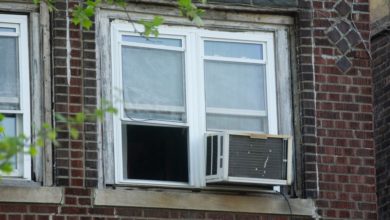Heavy Gunfire Rocks Iraq’s Green Zone After al-Sadr Quits

BAGHDAD — Supporters of an influential Iraqi Shi‘ite cleric fired rocket-propelled grenades and machine guns into Iraq’s Green Zone and security forces returned fire Tuesday, a serious escalation of a monthslong political crisis gripping the nation.
Officials stated that death rates rose to 30 within two days due to unrest.
After cleric Muqtada al-Sadr announced Monday he would resign from politics, his supporters stormed the Green Zone, once the stronghold of the U.S. military that’s now home to Iraqi government offices and foreign embassies. One country had to evacuate its embassy in the chaos.
Iraq’s government has been deadlocked since al-Sadr’s party won the largest share of seats in October parliamentary elections but not enough to secure a majority government — unleashing months of infighting between different Shi‘ite factions. Al-Sadr refused to negotiate with his Iran-backed Shi‘ite rivals, and his withdrawal Monday catapulted Iraq into political uncertainty and volatility with no clear path out.
Iran closed its borders to Iraq on Tuesday — a sign of Tehran’s concern that the chaos could spread, though streets beyond the capital’s government quarter largely remained calm. The country’s vital oil continued to flow, with global benchmark Brent crude trading slightly down at $103 a barrel.
Supporters of al-Sadr were seen live on television shooting rocket-propelled bombs and machine guns at the Green Zone a day later. Security forces inside the zone with machine guns occasionally returned fire.
While some bystanders recorded the gunfight using their phones, most fled behind sections of wall and wailed when shots hit them. As al-Sadr’s forces fired, a line of armored tanks stood on the other side of the barriers that surround the Green Zone, though they did not use their heavy guns.
At least one wounded man from al-Sadr’s forces was taken away in a three-wheel rickshaw, the Iraqi Foreign Ministry visible in the background. The area was visible for kilometers (miles).
According to two Iraqi medical officers, at least 30 deaths and nearly 400 injuries have occurred. Two Iraqi medical officials said that the death toll includes al-Sadr loyaltyists, who died in protests yesterday and overnight. Those figures are expected to rise, said the officials, who spoke on condition of anonymity because they weren’t authorized to release the information to journalists.
Members of Iraq’s majority Shi‘ite Muslim population were oppressed when Saddam Hussein ruled the country for decades. Saddam Hussein was Sunni when the U.S. led invasion in 2003 toppled him. Just under two-thirds of Iraq is Shi‘ite, with a third Sunni.
Continue reading: Iraq’s Political Paralysis Is a Result of a System the U.S. Created
Now, the Shi‘ites are fighting among themselves after the Americans largely withdrew from the nation, with Iranian-backed Shi‘ites and Iraqi-nationalist Shi‘ites jockeying for power, influence and state resources.
It’s an explosive rivalry in a country where many remain way of the Iranian government’s influence even though trade and ties remain strong between its peoples. In the 1980s, Iraq and Iran engaged in a bloody conflict that resulted in more than a million deaths.
Al-Sadr’s nationalist rhetoric and reform agenda resonates powerfully with his supporters, who largely hail from Iraq’s poorest sectors of society and were historically shut out of the political system under Saddam.
Al-Sadr’s announcement that he is leaving politics has implicitly given his supporters the freedom to act as they see fit.
Iranian state television stated that the closures were caused by unrest in Iraq and an enforced curfew in Iraqi towns. The Iranian government urged Iranians to avoid travel to neighboring countries. The decision came as millions were preparing to visit Iraq for an annual pilgrimage to Shi‘ite sites, and Tehran encouraged any Iranian pilgrims already in Iraq to avoid further travel between cities.
Kuwait, however, appealed to its citizens not to travel into Iraq. State-run KUNA news agency encouraged people who were planning to visit Iraq to put off their travel plans.
Kuwait, a tiny Gulf Arab sheikhdom, shares a border of 254 kilometers (158 miles) with Iraq.
The Netherlands has evacuated their embassy in Green Zone according to Wopke Hoekstra, the Foreign Affairs Minister. This was tweeted by Wopke Holstra on Tuesday morning.
“There are firefights around the embassy in Baghdad. Our staff are now working at the German embassy elsewhere in the city,” Hoekstra wrote.
Dubai’s long-haul carrier Emirates stopped flights to Baghdad on Tuesday over the ongoing unrest. The carrier said that it was “monitoring the situation closely.” It did not say when flights would resume.
Al-Sadr loyalists toppled the concrete barriers surrounding the government palace and tied ropes at the gates. Many people rushed to the palace’s lavish salons, marbled halls, and meeting places for Iraqi and foreign heads of states.
Iraq’s military announced a nationwide curfew, and the caretaker premier suspended Cabinet sessions in response to the violence.
Read More From Time




